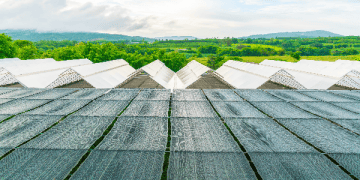Singapore is preparing for the import of low-carbon electricity from neighboring Indonesia, marking a significant step toward a sustainable energy future. According to Singaporean Prime Minister Lawrence Wong, the upcoming exports of solar power from Indonesia are expected to serve as a “new growth engine” for both countries.
The initial plans for the cross-border electricity trade are slated to begin in late 2027 or 2028, with Indonesia supplying green electricity to Singapore. The discussions surrounding this energy collaboration were highlighted during a meeting between Prime Minister Wong and Indonesian President Prabowo Subianto in Jakarta on Wednesday. Wong emphasized the potential for clean energy cooperation, which could drive growth in both nations. “This can be a new growth engine for both our countries, especially as we realize cross-border energy exports and cross-border carbon capture and storage in the coming years,” he stated in a joint press statement following the talks.
President Prabowo described Singapore as a key partner in Indonesia’s energy strategy, noting that the meeting provided an opportunity to strengthen ties in energy security and other strategic areas. Earlier in the year, Singapore’s Energy Market Authority (EMA) granted conditional licenses for five Indonesia-based projects to supply up to 2 gigawatts of green power. This approval brings Indonesia closer to becoming a key supplier of low-carbon electricity to Singapore, though further steps are required before the actual trading begins.
Among the companies awarded the conditional license are Adaro Solar International and EDP Renewables APAC, each with projects of 0.4 gigawatts, along with Pacific Medco Solar Energy (0.6 gigawatts), Vanda RE (0.3 gigawatts), and Keppel Energy (0.3 gigawatts). These licenses confirm that the projects are technically and commercially viable and are well into development.
In addition to these projects, EMA has also issued conditional approvals for Singa Renewables (1 gigawatt) and Shell Eastern Trading, which has partnered with Vena Energy to supply 0.4 gigawatts of green power. These approvals are the preliminary steps toward obtaining full licenses for the projects.
By 2035, Singapore aims to import 6 gigawatts of low-carbon electricity to decarbonize its power sector. In the meantime, both countries continue to explore additional low-carbon technology initiatives, including a bilateral green hydrogen project. A recent deal between PLN EPI, a subsidiary of Indonesia’s state electricity company PLN, and Singapore’s Sembcorp will see the construction of ASEAN’s largest green hydrogen facility in Sumatra.
Explore the newest supply chain news at The Supply Chain Report. Visit ADAMftd.com for free international trade tools.
#GreenEnergy #Sustainability #EnergyCollaboration #CleanEnergy #PowerTrade















